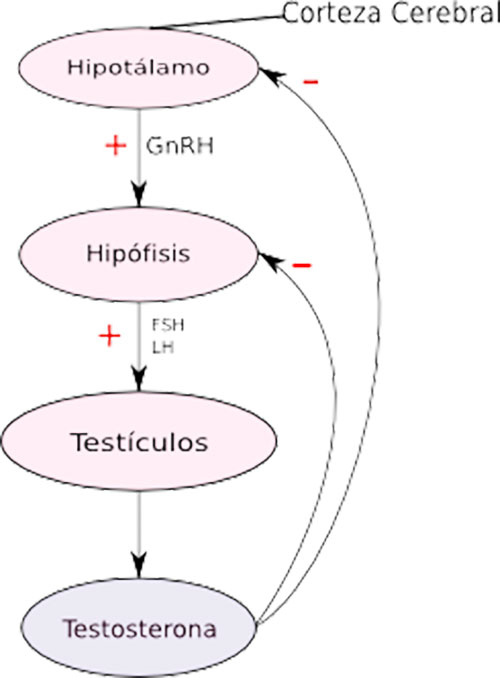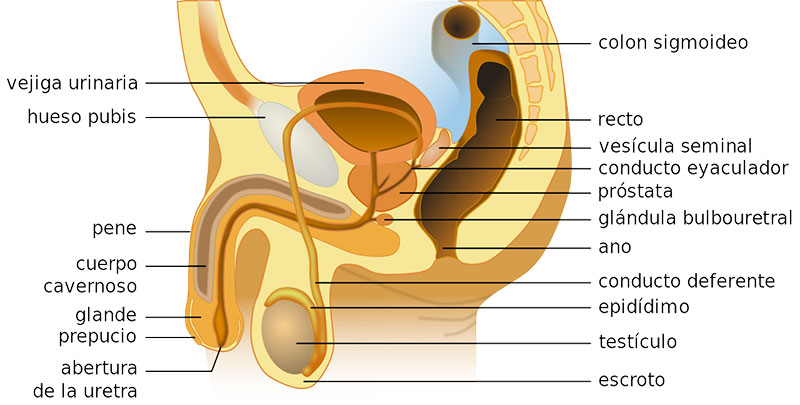Male disorders and their implications for fertility
Knowledge of sperm production and its physiological hormonal functioning is of the utmost importance.
In a simple way we can say that the male has a function in sperm production similar to that of the menstrual cycle in women, but in a cruder and less complex way on the interaction of the Hypothalamus-Pituitary-Testicle axis.
In a simple way, we will illustrate how this axis intervenes for testicular stimulation. Diagram 1: Representation of the Hypothalamus-Pituitary-Testicle Axis.

Spermatogenesis
Sperm production at the testicular level (Spermatogenesis) takes place in the seminiferous ducts (seminal tubules) with a duration of 62 to 75 days and in three phases Fig.1:
Espermatogénesis Testicular
Currently, fertility problems in men have been increasing alarmingly; This is probably due to the fact that every day we know and study men more.
Alterations in sperm quality is one of the main problems in male pathology and can be in several areas:
However, knowing that ejaculation is the combination of seminal fluid (60%), prostatic fluid (30%) and sperm (10%), is necessary to understand some of its alterations. The anatomical representation of the spermatic transit Fig.2, is important for the knowledge of some pathologies.

Male Anatomy External Genitals and Sperm Transit
We will mention some of the problems in men that can alter or modify sperm quality, such as:
